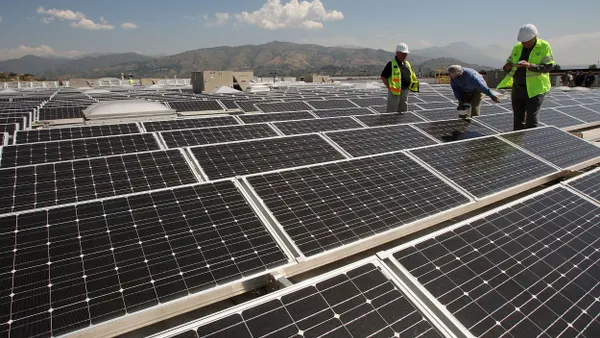Dive Brief:
- Google paid $3.2 billion for Nest in 2104, setting high expectations for the smart home thermostat. The parent company has since rebranded as Alphabet, and in its first quarter earnings this year indicated revenues at Nest may be lagging, Re/code reports.
- Google included Nest in its "Other Bets" revenue tranche, which along with several other companies showed revenues of $448 million in 2015. That, people with knowledge of the matter, likely means Nest is underperforming.
- According to Re/Code, there is speculation that this could threaten Nest's place with Google, based on sales targets of $300 million annually. Nest currently has three products: its flagship learning thermostat, a security camera and a smoke detector.
Dive Insight:
Is the Nest thermostat succeeding? It's tough to tell, because Google includes that revenue in an "Other Bets" category that also mixes in a broadband and life sciences unit. But Re/code has some analysis of the numbers, and says the product's "future is up in the air, as it’s clearly fallen short" of lofty expectations.
This isn't the first hint of internal issues inside Nest. Business Insider reported mid-February that analysts had some concerns that Nest was underperforming even as its employees voiced worries about the state of the business as they worked on weekends.
Then Greentech Media shed some more light on the internal issues facing Nest, mostly stemming from restructuring when Google took over the company in 2014, and tightened purse strings.
There are no sales reports for Google Fiber but some familiar with the business are estimating them at almost $100 million. Verily, the science unit, may have revenues below $10 million. While that might indicate Nest sales higher than then $300 million target, Re/code points out that Nest has only reached those numbers after acquiring DropCam, a security camera company it bought in 2014.
According to Re/code, DropCam's 2014 sales growth was higher than Nest's other devices. All of this could leave the company in a state of uncertainty, as it has sales targets and a budget that extends to the end of this year.
The thermostat may be seeing more competition than expected. With home energy management revenues expected to reach an annual value of $2.2 billion in North America by 2022, additional offerings may be diluting the market for a product that was a standout just two years ago. Wiser Air, for instance, a wi-fi enabled device made by Schneider Electric, debuted last year and third-party vendors working with utilities are moving quickly into the market.














